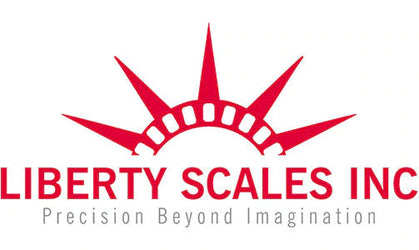
How Smart Livestock Scales Are Revolutionizing Agriculture Profits
The agriculture industry stands at a technological crossroads where precision meets profitability. Smart livestock scales represent this transformation, converting traditional guesswork into data-driven decision making that delivers measurable financial returns.
The Hidden Cost of Inaccurate Weighing
Inefficient livestock weighing techniques commonly reduce farm profitability. Visual estimations of weight, for example, typically have a 15-20% margin of error, contributing to significant feed expenditure and poor marketing strategies. Manual record-keeping consumes valuable labor hours while providing limited actionable insights.
Modern farmers face mounting pressure to maximize efficiency while maintaining animal welfare standards. Smart weighing technology addresses these challenges by providing precise measurements that inform every aspect of livestock management.
Technology That Transforms Bottom Lines
Today's livestock agriculture scales integrate advanced sensors with cloud-based analytics platforms. These systems deliver accuracy within 0.1% while automatically generating comprehensive performance reports. Real-time data transmission enables remote monitoring through smartphone applications, eliminating the need for constant physical presence.
RFID integration creates individual animal profiles that track weight progression, health indicators, and performance metrics over time. This granular data collection enables precision management strategies previously impossible with traditional methods.
Specialized Cage Systems: Safety Meets Accuracy
A livestock scale cage has become essential for operations that need better control over animals during weighing. These enclosed systems provide secure containment while ensuring measurement precision, particularly valuable for nervous or aggressive animals.
Modern scale cages are designed with animal-specific features that minimize stress while ensuring accurate measurements. Adjustable panels accommodate various animal sizes, while non-slip surfaces ensure safety for both livestock and operators.
For hog farming, the scale cage system offers a uniquely innovative solution. These units combine secure containment with pig-specific design elements that account for natural behavior patterns. The result is faster processing times with improved accuracy compared to traditional open platform systems.
For health monitoring applications, a scale with cage provides controlled environmental conditions essential for consistent measurements. Veterinary procedures requiring precise weight data benefit significantly from these contained weighing systems.
Financial Impact: Real Numbers from Real Operations
Implementation of smart weighing technology typically generates 20-30% profit improvements within the first year. Improvements in feed efficiency can often offset the system's expenses, as operations have noted a 15-25% decrease in feed waste due to precise portioning.
Marketing optimization represents another significant profit driver. Smart scales enable farmers to market animals at optimal weights rather than calendar-based schedules. This precision approach increases per-animal revenue by 8-15% compared to traditional methods.
Health monitoring capabilities prevent costly veterinary emergencies through early detection of weight loss or gain patterns that indicate developing health issues. Proactive intervention saves thousands in treatment costs while maintaining optimal animal performance.
Advanced Features Driving Results
Modern systems now include predictive analytics that help predict optimal feeding times, market entry points, and breeding choices. Machine learning algorithms examine past data to uncover patterns and trends that guide future management approaches.
Wireless connectivity enables seamless integration with existing farm management software. Automatic data synchronization eliminates manual entry errors while providing comprehensive reporting capabilities that satisfy regulatory requirements and business planning needs.
Weather-resistant construction ensures reliable operation in challenging agricultural environments. Solar power options and extended battery life support remote installations where electrical connections are impractical.
Implementation Strategy for Maximum ROI
Successful implementation begins with thorough assessment of current weighing practices and identification of specific improvement opportunities. System selection should align with operation size, animal types, and existing infrastructure requirements.
Professional installation ensures optimal performance and longevity. Proper foundation preparation, accurate calibration, and comprehensive staff training maximize system effectiveness from day one.
Integration with existing workflows minimizes disruption while maximizing adoption rates. Implementing changes gradually enables staff to gain proficiency without disrupting ongoing operations.
Choosing the Right System Configuration
Platform scales are ideal for extensive cattle operations that demand robust and high-capacity weighing equipment. These systems handle 2,000-10,000 pound capacities while providing wireless data transmission and weather protection.
Chute scales integrate weighing with animal handling procedures, streamlining processing workflows. These systems work particularly well for operations requiring frequent veterinary procedures or routine health monitoring.
Cage scale systems excel for smaller livestock including swine, sheep, and goats. The contained environment reduces stress while ensuring accurate measurements essential for precise management decisions.
Data-Driven Decision Making
Smart scales transform weight data into actionable business intelligence. Automated feed conversion calculations optimize nutrition programs while reducing costs. Growth rate tracking identifies top-performing genetics for breeding program enhancement.
Market timing optimization removes guesswork from selling decisions. Data-driven marketing strategies ensure animals reach optimal weights that maximize per-pound pricing while minimizing feed costs.
Health trend analysis enables proactive veterinary care that prevents minor issues from developing into costly problems. Early intervention maintains animal welfare while protecting farm profitability.
Investment Considerations and Returns
Initial system costs range from $3,000 for basic cage scales to $20,000 for comprehensive chute systems. However, most operations achieve full return on investment within 12-18 months through improved efficiency and optimized management practices.
Financing options and lease programs make advanced weighing technology accessible to operations of all sizes. Tax incentives for agricultural technology investments further improve investment economics.
Ongoing operational costs remain minimal with proper maintenance. Cloud-based software eliminates server requirements while providing automatic updates and data backup services.
The Future of Livestock Profitability
Smart livestock scales represent the foundation of precision agriculture management. Integration with IoT sensors, drone monitoring, and artificial intelligence will further enhance decision-making capabilities while maximizing both animal welfare and financial returns.
Operations embracing this technology today position themselves at the forefront of an industry transformation that rewards precision, efficiency, and data-driven management. The question isn't whether to adopt smart weighing technology, but how quickly farms can implement these profit-enhancing systems to maintain competitive advantage in an increasingly sophisticated agricultural marketplace.
Need the perfect scale cage system for your operation? Liberty Scale offers comprehensive livestock scale cage solutions with expert installation and training. Contact Liberty Scale for personalized recommendations.

